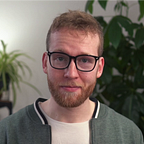Is medicine right for me?
“Is medicine right for me?” is a question that a lot of medics ask at some point during their career.
Perhaps you’re fed up of endless exams, not enthusiastic about working nights and weekends for the foreseeable future, or just don’t think it’s a good match for your personality.
Whatever your reasoning, there are a few points worth bearing in mind.
Important considerations
It’s worth noting that whatever your source of dissatisfaction, no career change is going to immediately solve this. It’s easy in a moment of frustration to think “screw this, my life would be so much easier if I became a (insert ‘dream job’ here). The reality is every profession will have its own upsides and downsides. Identify your fundamental sources of dissatisfaction and consider whether you can improve the situation or whether it will change in future as your career progresses.
The flip-side of this is that you mustn’t feel obliged to stay in medicine for fear of leaving. Leaving medicine can seem like a daunting task, particularly if you’ve been on that pathway for a long time, it’s what your friends and family expect, and it’s such a ‘safe’ career path. However, staying in any job for this reason is not a source of long-term satisfaction.
Switching career involves a significant amount of work over a sustained period of time. It’s easy to underestimate this, but in a lot of alternative career paths a medical degree won’t count for a huge amount. You’ll often need to demonstrate your merits in other ways.
The best approach to take is to do your research. Even if you do the research and decide to stick with medicine, you’ll only feel more content in medicine for having done so.
I’ll offer a brief outline of options in this article and signpost to some useful resources.
Options
Broadly, there are three routes you can take:
— Find a clinical practice that suits you. For example, if you desire flexibility, consider the “Easy-ROAD” specialities (ENT, Radiology, Ophthalmology, Anaesthesiology and Dermatology — although these aren’t necessarily “easier” than other specialities!)
— Find a non-clinical, medically-related job, such as scientific research, medico-legal work, teaching, public health, medical communications, pharma, medical entrepreneurship and medical management consultancy.
— Find a job unrelated to medicine, which can be pretty much anything, although some have greater overlap of skills gained from medicine than others.
Useful resources
The 80,000 hours career guide is fantastic for thinking about your career from the ground-up; by identifying features that are important to you and then considering which careers provide them. (They have also written a careers guide on Medicine from the point of view of making a positive contribution to society.)
“Do you feel like you wasted all that training” is an insightful and informative book which breaks down leaving clinical medicine into five stages; introspection, exploration, preparation, acquisition and transition. It encourages networking, a practice not classically engaged in by medics, in order to discover the opportunities that exist in the fields surrounding medicine.
So Good They Can’t Ignore You by Cal Newport is a book written for a more general audience which makes a counter-argument to the idea of “following your passion”. It argues that you should work hard to develop valuable skills which will then enable you to craft a career you love.
“Don’t be a donkey” is a short blog post by Derek Sivers which argues that you have time to try different things.
Concluding remarks
Deciding whether or not to leave medicine can be a difficult decision. There’s no one-size-fits-all answer and it’s up to us to figure out what’s best in our individual cases. The best way to enable an informed, educated decision is by a thorough exploration of ourselves and of our options.
Also shared in The New Medic.
Photo credits: Raul Petri on Unsplash
Originally published at Chris Lovejoy.
